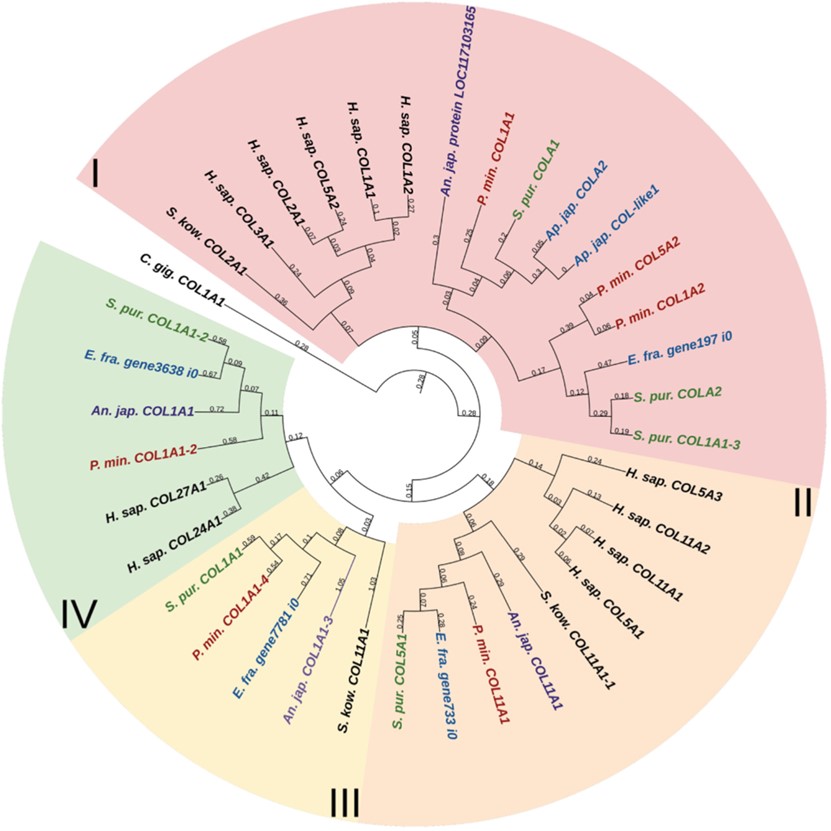Glycoprotein Function as Structural Molecule
Structural glycoproteins are commonly insoluble and mainly distributed in the extracellular matrix, such as collagen and various non-collagen glycoproteins including fibronectin and laminin. Their most function is supporting, binding, and buffering the extracellular matrix, while structural glycoproteins also play a role in cell recognition, adhesion, and migration, and regulate cell proliferation and differentiation. It is evident that sugar chains improve the physicochemical properties of structural glycoproteins, but the clear bioactivity has not been understood. Moreover, structural glycoproteins appear not only in animals but also exist in plants, bacteria, and fungi such as cell walls. Therefore, Creative Biolabs developed comprehensive glycoengineering services including Glyco-engineered Mammalian Cell Expression System, Glyco-engineered Pichia pastoris Expression System, and Glyco-engineered Plant-based Expression System. Based on our established platform, we can obtain various commercial or customized glycoproteins rapidly and inexpensively to support our clients all over the world.
Animal Structural Glycoprotein
The most common structural glycoproteins in animal are collagen-like proteins. Collagen is biopolymer fibrin which is the main component of connective tissue of animals and the most abundant and widely distributed structural protein in mammals with accounting for 25% to 30% of the total protein. It is closely related to tissue formation, maturation, information transmission between cells, joint lubrication, wound healing, calcification, blood coagulation, and senescence. Till now, 26 types of collagens have been discovered and 5 among them are usually found in humans. Collagen has low immunogenicity, good biocompatibility, and biodegradability. Hence collagen has various bioactivities including protecting the skin, helping the calcium uptake of osteocytes, binding bones, and muscles, and acting as a scaffold for cell growth. Moreover, collagen also plays a role in therapeutic glycoprotein development and the light industry.
 Fig.1 Types of fiber-forming collagen in echinoderms.1
Fig.1 Types of fiber-forming collagen in echinoderms.1
Plant Structural Glycoproteins
Various kinds of glycoproteins are widely spread over the plants while the extension is regarded as the main structural glycoproteins which contribute to the growth of many plants. Extensions contain abundant oxyproline residue which is covalently attached with arabinose via an O-glycosidic bond. Many evidence shows that extensions are mainly found in the cell walls and play an important role in cell spreading. However, the mechanism of extensions controlling the growth of plants is not clear.
Glycoproteins function as structural molecules are commonly exist in various species and carry important bioactivities. Nowadays, Creative Biolabs can obtain certain glycoproteins conveniently and rapidly by our established glycoprotein expression platform via Mammalian Cell, Pichia pastoris, and Plant-based system. If you are interested in our service, please feel free to contact us for more details.
Reference
-
Dolmatov, Igor Yu, and Vladimir A. Nizhnichenko. "Extracellular Matrix of Echinoderms." Marine Drugs 21.7 (2023): 417. Distributed under Open Access license CC BY 4.0, without modification.
For Research Use Only.
Resources

 Fig.1 Types of fiber-forming collagen in echinoderms.1
Fig.1 Types of fiber-forming collagen in echinoderms.1
